Have a fun, safe & enjoyable holiday with our guide to staying safe in the USA
The USA is a huge and diverse country, home to 50 states each with their own culture and history making it a fascinating destination to explore.
From biting the Big Apple to rubbing shoulders with celebs in the Hollywood hills, to winning big in Vegas to the soulful sounds of the South, no wonder over 600,000 Australian's visit the USA each year.
No matter what you are after, the US has it all and this guide can hopefully help you make the most of your next trip.
Before we go through all the things you might need to be careful of, here are some things that are not
to be missed while visiting the United States of America.

The U.S. has a number of iconic national parks if you’re looking to get back to nature and explore the beautiful outdoors. Head down south to the Grand Canyon or go west and visit the glaciers at Yosemite. There are tons of parks to choose from.

No trip to the U.S. would be complete without visiting the city that never sleeps. New York City is one of the most popular spots in the U.S. that attracts more tourists than anywhere in the world. Immerse yourself in this vibrant, buzzing city, you won’t be disappointed.

The U.S. is blessed with a wealth of gorgeous beaches. California, Florida and Hawaii are the number one spots for good surf and warm climate all year round. But don’t forget the east coast, home to some beautiful beaches that are especially gorgeous in the summer.

America has over 500 theme parks spread across the country! If you’re travelling with children then visiting a theme park can be a fun-filled, exciting experience for the whole family. Check out Orlando, Florida - the Theme Park Capital of the world!

One of the best ways to see a good chunk of the states is to hit the road with your best mates or family. A road trip is like your own personal hop on hop off bus except you get to make the rules. Try a scenic drive on California’s Pacific Highway 1!

The start of April means the start of Baseball season. If you get a chance, buy some tickets, drink some beer and grab a hot dog. It doesn’t get more American than that.
Before you go booking your holiday to the U.S. make sure you are aware of what you need to get in.
 If you are a New Zealand citizen you can enter the country without a visa if you register online 72 hours before you travel.
If you are a New Zealand citizen you can enter the country without a visa if you register online 72 hours before you travel.
 If you do not register online ahead of time you will need to apply for an entry visa. Visitors may spend up to 90 days in the U.S.A
If you do not register online ahead of time you will need to apply for an entry visa. Visitors may spend up to 90 days in the U.S.A
 To get up-to-date information on entry requirements click here
To get up-to-date information on entry requirements click here
 Declare all plant and animal products.
Declare all plant and animal products.
 No more than 200 cigarettes or 100 cigars.
No more than 200 cigarettes or 100 cigars.
 Only 1 litre of alcohol if you are over 21, check each state a this can vary.
Only 1 litre of alcohol if you are over 21, check each state a this can vary.
You can find more information of what you can and can’t bring to the U.S. here

Calling home won’t be cheap from the U.S. but it won’t be hard to get your hand on a SIM card. The major national operators in the U.S. include:
011 + 64 + Area Code - Land phone number.
011 + 64 + Mobile phone number.
011 – Exit code for dialling International numbers from the U.S.
64 - Country Code of New Zealand.
For a full list of New Zealand area codes visit here.

0011 + 1 + Area Code - Land phone number.
0011 + 1 + Mobile number.
0011 - Exit code for New Zealand
1 - Country Code of the U.S.
For a full list of US area codes click here.
![]() 911 is the number for all emergency services including the police, ambulance, fire services and crime.
911 is the number for all emergency services including the police, ambulance, fire services and crime.
![]() +1 (202) 328-4800 is the number for the New Zealand Embassy in the U.S.
+1 (202) 328-4800 is the number for the New Zealand Embassy in the U.S.
U.S. airport security is extremely tight, so make sure you allow extra time for security checks when departing from the airport. After going through security there are several means of transportation available:
There are tons of car rental companies at your disposal at most airports.
Taxis are available on demand as you exit the airport. Most will have enough room for you to fit in all your luggage and get you safely to your next destination.
Most airports, especially the bigger ones, will have a shuttle bus service available from the airport that will take you to of the city centre.
Check that the airport you are flying into will have public transportation from the airport. Not all of them do.
The United States currency is the U.S. Dollar. The exchange rate between the U.S. and New Zealand dollar varies greatly, so its best to keep an eye on it for a few months before travelling to ensure you get a good rate.

The New Zealand Government issues travel warnings for destinations depending on the security issues at hand. You can find them at Safe Travel.
The U.S. is a relatively safe place but it does have a higher crime rate than New Zealand which means you should exercise caution at all times.

Guns are legal in the US which means gun violence is more common than here in New Zealand but it is unlikely to affect your trip.

Burglary is another very common occurrence with reports of more than 2 million a year. Remember to lock your doors!
 Larceny/theft is the most common criminal activity in the U.S. with more than 7 million reported cases each year.
Larceny/theft is the most common criminal activity in the U.S. with more than 7 million reported cases each year.

The U.S. is a great place for a family adventure with loads of activities for the whole family to enjoy. Here are a few family friendly tips.

Pick family friendly hotels or holiday parks. This will ensure there are plenty of things to keep the whole family entertained and some will offer kids clubs or crèches.

Save money on attractions by getting family tickets to places like theme parks and zoos.

Visit museums, beaches and national parks with the kids. They will have a great time exploring and many are completely free!

Baby changing rooms are available in both male and female toilets in all public buildings.

Not all restaurants will have high chairs so it’s a good idea to bring a pram.

Childcare does not come cheap in the US. So if you are thinking of hiring a nanny expect to pay.
The US is a generally pretty safe but just like a lot of places in the world you may take some extra precautions as a female traveller, especially if you are travelling solo. We have put together some extra tips but always follow your instincts and make your own judgements on a situation.
 Try to book taxis in advance and know what licensed taxis look in the states you’re visiting. Avoid getting into unmarked or unofficial vehicles, especially if they approach you.
Try to book taxis in advance and know what licensed taxis look in the states you’re visiting. Avoid getting into unmarked or unofficial vehicles, especially if they approach you.
 Make sure to watch your drink on a night out to avoid it being spiked. Never leave it with strangers or people you have just met.
Make sure to watch your drink on a night out to avoid it being spiked. Never leave it with strangers or people you have just met.
 When exploring new places, try to stick to busier areas and avoid walking around alone at night. If somewhere doesn’t look or feel right, avoid it.
When exploring new places, try to stick to busier areas and avoid walking around alone at night. If somewhere doesn’t look or feel right, avoid it.
 When travelling home late at night, think about getting a taxi over public transport, especially if you are in a new or unfamiliar area. It may be more expensive but definitely worth the extra money to make sure you’re safe.
When travelling home late at night, think about getting a taxi over public transport, especially if you are in a new or unfamiliar area. It may be more expensive but definitely worth the extra money to make sure you’re safe.
Our American friends on the other side of the world may appear similar to us in some of their culture and customs compared to other countries but there are still a lot of cultural differences. Make sure you are in the know to avoid any embarrassing situations.
Be warned some places add a service charge that can be either discretionary or mandatory (usually for larger parties). So make sure you check your receipt before leaving a big wad of cash for your waiter or waitress.

In the U.S. they drive on the other side of the road. This will get confusing if you decide to drive or even when crossing the road. Remember to get in the driver’s seat on the LEFT side.
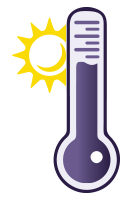
Americans do not use the metric system which can cause a bit of confusion. You will most commonly notice this when driving that they use miles instead of kilometres. When telling temperature they use Fahrenheit instead of Celsius. Have your metric converter ready!
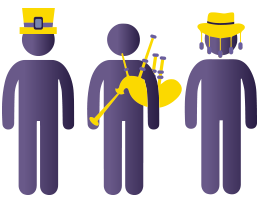
The terminology and slang (or lack thereof) is very different in the U.S. For the most part Kiwis will have no problem understanding an American, however, American’s may not understand you. Break down your slang for them as they don’t typically abbreviate words as much as us.
Getting scammed can happen anywhere, but when you’re a tourist in a new city you’re often a prime target for scams. Read up on the scams you need to know about and you should be A-OK!

Beggars are common in the US and you may come across people asking for money. Whether you choose to give them any or not, always do so politely and be wary of those approaching you at night.

Credit card theft and fraud can be simple distraction techniques when you are using your card to hidden electric devices that steal your card information. Make sure when using an ATM to always cover your pin.

The US has much more relaxed alcohol licensing laws than NZ, but you can still get yourself into trouble. The drinking age is higher in the US at 21 and places are often quite strict on IDs for anyone that looks young. Once venues start closing get straight into a licensed taxi and return to where you are staying.

As with any travel destination there are areas to be avoided as they can be unsafe especially for tourists. Inner cities areas can be dangerous with incidences of muggings and assaults.

Be wary of event spruikers. There is no guarantee that their tickets are real or that the event they are selling tickets for even exists. If the tickets don’t turn out to be legit the seller will be long gone along with your money.

Pickpockets are a problem anywhere you go but it’s especially a bigger risk in crowded areas in big cities like New York. Keep your valuables in a zipped pocket or purse.

If it’s one thing Kiwis know, it’s hot weather. Depending on where you’re heading to, you may get a nice break from the scorching sun, however you could still subject to sunburn and sun stroke, especially between June and August.
How to avoid sunburn:
If you’re planning a trip on the East Coast during the winter months (December - February) just remember it can get very cold and chances are it will snow. The roads can be extremely icy and be very hazardous in winter. Take these precautions:
Tap water in the U.S. is generally clean and safe to drink.
The U.S. is a huge country which means the weather will vary depending on where you are going and at what time of the year. The seasons in the U.S. are summer (June-August), fall (September-November), winter (December-February) and spring (March-May).
The U.S. is known to experience a range of natural disasters like hurricanes, tornados, floods, blizzards, earthquakes and storms. Be sure to check the forecast before you leave as you will not want to get stuck in any of those weather conditions.

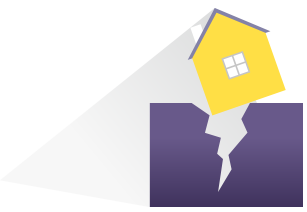

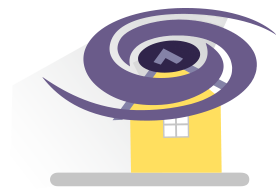
*For more information on how to prepare and plan for natural disasters in the U.S. click here.
There are plenty of amazing beaches all over the U.S. Be aware of the risks whenever you enter the water.
Be aware of flags that are posted up at the beach you are going to. They are there for a reason and if you want to have a fun and safe time at the beach you need to understand what the flags mean.
When red flags are posted up it means you should not enter the water. This means there are strong currents and rip tides that can be very dangerous.
This flag means the water conditions are rough but are not life-threatening and can be entered with extreme caution.
This means that the threat of danger is minimal and indicates that it is safe to swim in the water. Exercising caution is still required.
When you see blue and purple flags it means that potentially dangerous marine life such as sharks or jellyfish have been spotted and to either stay out of the water or swim with caution and keep an eye out.
Your passport is your ticket to ride so try not to lose it down the back of a couch, or leave it in the back of a taxi. Follow these handy steps if you do lose your passport.
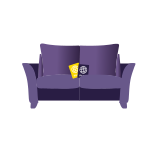
Seems simple right? But sometimes your passport may have been left at the last place you stayed so call the hotel.
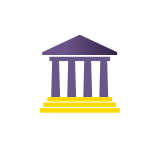
If you are unable to find it after searching far and wide (or you know for a fact it was stolen) then you need to report it to the government.
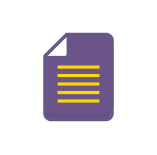
Things you will need to do to get a replacement passport include: an application form, photos and possibly booking an interview.
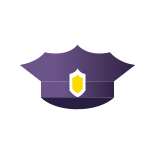
Of it occurring. Ensure you get a police report documenting the loss or theft. You will need this report to make a travel insurance claim.
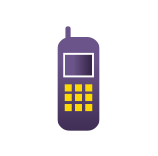
To report the claim as soon as you can. That way you can confirm cover and seek advice.
 Embassy of New Zealand
Embassy of New Zealand
+1 (202) 328-4800
 NZ Passport Information Service
NZ Passport Information Service
0800 22 50 50
If something serious happens and you find yourself severely sick or injured you’re going to need to get to a hospital, and fast. Always make yourself aware of your nearest hospital, just in case.
New Zealand and the U.S. do not have a reciprocal healthcare agreement which means that you can’t use their health services, hospitals or GP services unless you pay.
If you are prescribed medicine you will also need to pay for it at a pharmacy.
 Emergency
Emergency
 Local Directory Enquiries
Local Directory Enquiries
411
 Local Operator Assistance
Local Operator Assistance
0
 John Hopkins Hospital
John Hopkins Hospital
+1 410 955 5000
 North-Western Memorial Hospital
North-Western Memorial Hospital
+1 312 926 2000
 Cleveland Clinic
Cleveland Clinic
+1 216 444 2200
 Ronald Reagan University Of California Los Angeles Medical Centre +1 310 825 9111
Ronald Reagan University Of California Los Angeles Medical Centre +1 310 825 9111
 University Of California San Francisco Medical Centre
University Of California San Francisco Medical Centre
+1 415 476 1000
 Massachusetts General
Massachusetts General
Hospital
+1 617 726 2000
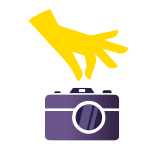
Don’t panic (and don’t fight back if you are aware of the robbery). Your camera isn’t worth as much as your life so best not to risk it.
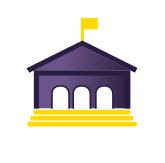
Contact your embassy or high commission office to get assistance if needed, such as if you have troubles with the local police.
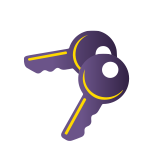
Report stolen keys to your hotel. Replacement keys and locks may need to be arranged.
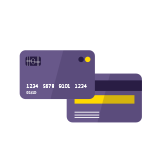
Cancel all credit cards and report them stolen to your bank.
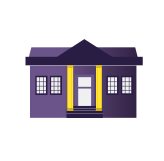
Find the nearest police station and report the incident, and obtain a police report within 24 hours.
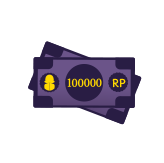
If all your cash and access to money was stolen you can arrange for a money transfer from someone back home.
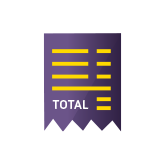
If you need to replace items such as your beloved camera speak to your insurance company to find out what is covered.

Last but not least stay positive. Theft can happen to even the savviest of travellers.
Whether you’re off to the beaches in Hawaii or Florida, the big cities of Chicago and New York, or the many wildlife reserves and National Parks, we hope you have a fun and enjoyable trip to the US! If something goes wrong, rest assured, at 1Cover, we've got you covered.